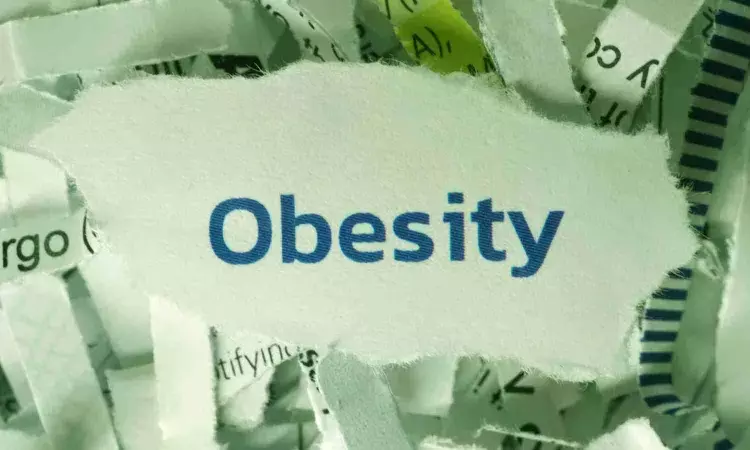- Home
- Medical news & Guidelines
- Anesthesiology
- Cardiology and CTVS
- Critical Care
- Dentistry
- Dermatology
- Diabetes and Endocrinology
- ENT
- Gastroenterology
- Medicine
- Nephrology
- Neurology
- Obstretics-Gynaecology
- Oncology
- Ophthalmology
- Orthopaedics
- Pediatrics-Neonatology
- Psychiatry
- Pulmonology
- Radiology
- Surgery
- Urology
- Laboratory Medicine
- Diet
- Nursing
- Paramedical
- Physiotherapy
- Health news
- Fact Check
- Bone Health Fact Check
- Brain Health Fact Check
- Cancer Related Fact Check
- Child Care Fact Check
- Dental and oral health fact check
- Diabetes and metabolic health fact check
- Diet and Nutrition Fact Check
- Eye and ENT Care Fact Check
- Fitness fact check
- Gut health fact check
- Heart health fact check
- Kidney health fact check
- Medical education fact check
- Men's health fact check
- Respiratory fact check
- Skin and hair care fact check
- Vaccine and Immunization fact check
- Women's health fact check
- AYUSH
- State News
- Andaman and Nicobar Islands
- Andhra Pradesh
- Arunachal Pradesh
- Assam
- Bihar
- Chandigarh
- Chattisgarh
- Dadra and Nagar Haveli
- Daman and Diu
- Delhi
- Goa
- Gujarat
- Haryana
- Himachal Pradesh
- Jammu & Kashmir
- Jharkhand
- Karnataka
- Kerala
- Ladakh
- Lakshadweep
- Madhya Pradesh
- Maharashtra
- Manipur
- Meghalaya
- Mizoram
- Nagaland
- Odisha
- Puducherry
- Punjab
- Rajasthan
- Sikkim
- Tamil Nadu
- Telangana
- Tripura
- Uttar Pradesh
- Uttrakhand
- West Bengal
- Medical Education
- Industry
Financial incentives may improve outcomes of dietary intervention among adolescents with severe obesity: JAMA

Researchers have found that combining financial incentives (FIs) with meal replacement therapy (MRT) significantly improves weight loss outcomes in adolescents with severe obesity. A recent study was published in the journal JAMA Pediatrics by Amy C. Gross and colleagues. This randomized clinical trial, conducted at a large academic health center in the Midwest from 2018 to 2022, aimed to evaluate the impact of FIs on BMI reduction, body fat, and cardiometabolic risk factors.
Adolescent severe obesity is notoriously difficult to treat with traditional lifestyle modification therapies. MRT has shown short-term efficacy for BMI reduction, but sustaining these outcomes over the long term remains challenging. Introducing FIs as an adjunct intervention could potentially enhance adherence to healthy behaviors and improve long-term efficacy.
The study involved 126 adolescents aged 13 to 17 years with severe obesity, defined as ≥120% of the 95th BMI percentile or a BMI ≥35. Participants were randomized to receive either MRT alone or MRT plus FIs. The MRT included preportioned, calorie-controlled meals (~1200 kcals/day). The FI group received incentives based on their weight reduction from baseline. The primary endpoint was the mean percentage change in BMI from randomization to 52 weeks. Secondary endpoints included changes in total body fat, blood pressure, triglyceride to high-density lipoprotein ratio, heart rate variability, and arterial stiffness. Cost-effectiveness and safety, particularly concerning unhealthy weight-control behaviors, were also assessed.
• Among the participants (73 females [57.9%]; mean [SD] age, 15.3 [1.2] years), 63 received MRT plus FIs, and 63 received only MRT.
• After 52 weeks, the MRT plus FI group experienced a significantly greater mean BMI reduction of −5.9 percentage points (95% CI, −9.9 to −1.9 percentage points; P = .004) compared to the MRT group.
• The MRT plus FI group saw a mean total body fat mass reduction of −4.8 kg (95% CI, −9.1 to −0.6 kg; P = .03).
• There were no significant differences between the groups in cardiometabolic risk factors or unhealthy weight-control behaviors.
• The intervention was also found to be cost-effective, with an incremental cost-effectiveness ratio of $39,178 per quality-adjusted life year.
The study indicates that adding FIs to MRT enhances weight loss outcomes in adolescents with severe obesity. The greater reductions in BMI and total body fat in the FI group suggest that financial incentives may improve adherence to dietary interventions and promote sustained healthy behaviors. Importantly, the study did not observe any increase in unhealthy weight-control behaviors, addressing a common concern regarding incentive-based interventions.
This study demonstrates that integrating financial incentives with meal replacement therapy significantly enhances BMI and body fat reduction in adolescents with severe obesity, without promoting unhealthy weight-control behaviors. These findings suggest that FIs could be a valuable tool in obesity management, promoting better adherence to treatment and improving health outcomes.
Reference:
Gross, A. C., Freese, R. L., Bensignor, M. O., Bomberg, E. M., Dengel, D. R., Fox, C. K., Rudser, K. D., Ryder, J. R., Bramante, C. T., Raatz, S., Lim, F., Hur, C., & Kelly, A. S. (2024). Financial incentives and treatment Outcomes in adolescents with severe obesity: A randomized clinical trial. JAMA Pediatrics. https://doi.org/10.1001/jamapediatrics.2024.1701
Dr Riya Dave has completed dentistry from Gujarat University in 2022. She is a dentist and accomplished medical and scientific writer known for her commitment to bridging the gap between clinical expertise and accessible healthcare information. She has been actively involved in writing blogs related to health and wellness.
Dr Kamal Kant Kohli-MBBS, DTCD- a chest specialist with more than 30 years of practice and a flair for writing clinical articles, Dr Kamal Kant Kohli joined Medical Dialogues as a Chief Editor of Medical News. Besides writing articles, as an editor, he proofreads and verifies all the medical content published on Medical Dialogues including those coming from journals, studies,medical conferences,guidelines etc. Email: drkohli@medicaldialogues.in. Contact no. 011-43720751


